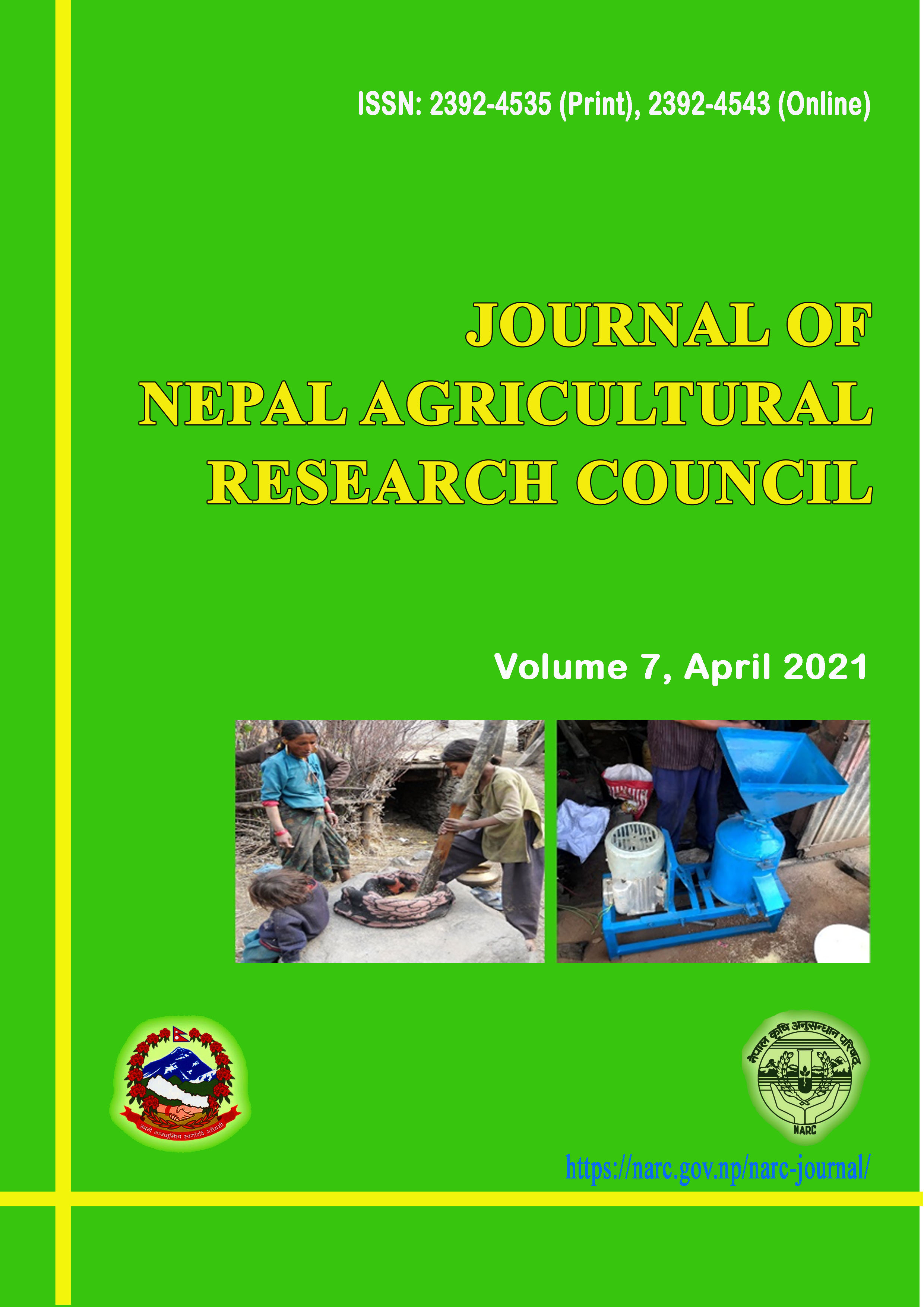Conservation Agriculture Mitigates the Effects of Climate Change
DOI:
https://doi.org/10.3126/jnarc.v7i1.36934Keywords:
Climate change, climate smart agriculture, conservation agricultureAbstract
Intensive tillage based conventional agriculture have high global warming potential. Alternative to this, conservation agriculture (CA) systems utilize soils for the production of crops by reducing excessive tillage, maintaining crop residue on the soil surface, and adoption of crop rotations. The paper attempts to review the findings of CA based experiments under different cropping systems within and outside of the country. It has been found that CA increases and sustains the crop productivities, mitigates green house gas emissions from agriculture by enhancing soil carbon sequestration, improving soil nutrient status and water use efficiencies, and reducing fuel consumption. Mainstreaming of CA systems in Nepal is hindered by its knowledge gap, inadequate farm machineries and tools, small holdings, poor infrastructures, and lack of CA friendly policy support. Therefore, there is an urgent need to test, verify and scale-out the CA based technologies by Nepal Agricultural Research Council (NARC) across the different agro-ecologies through farmer-centered partnership among the international institutions, public and private sector of Nepal.




